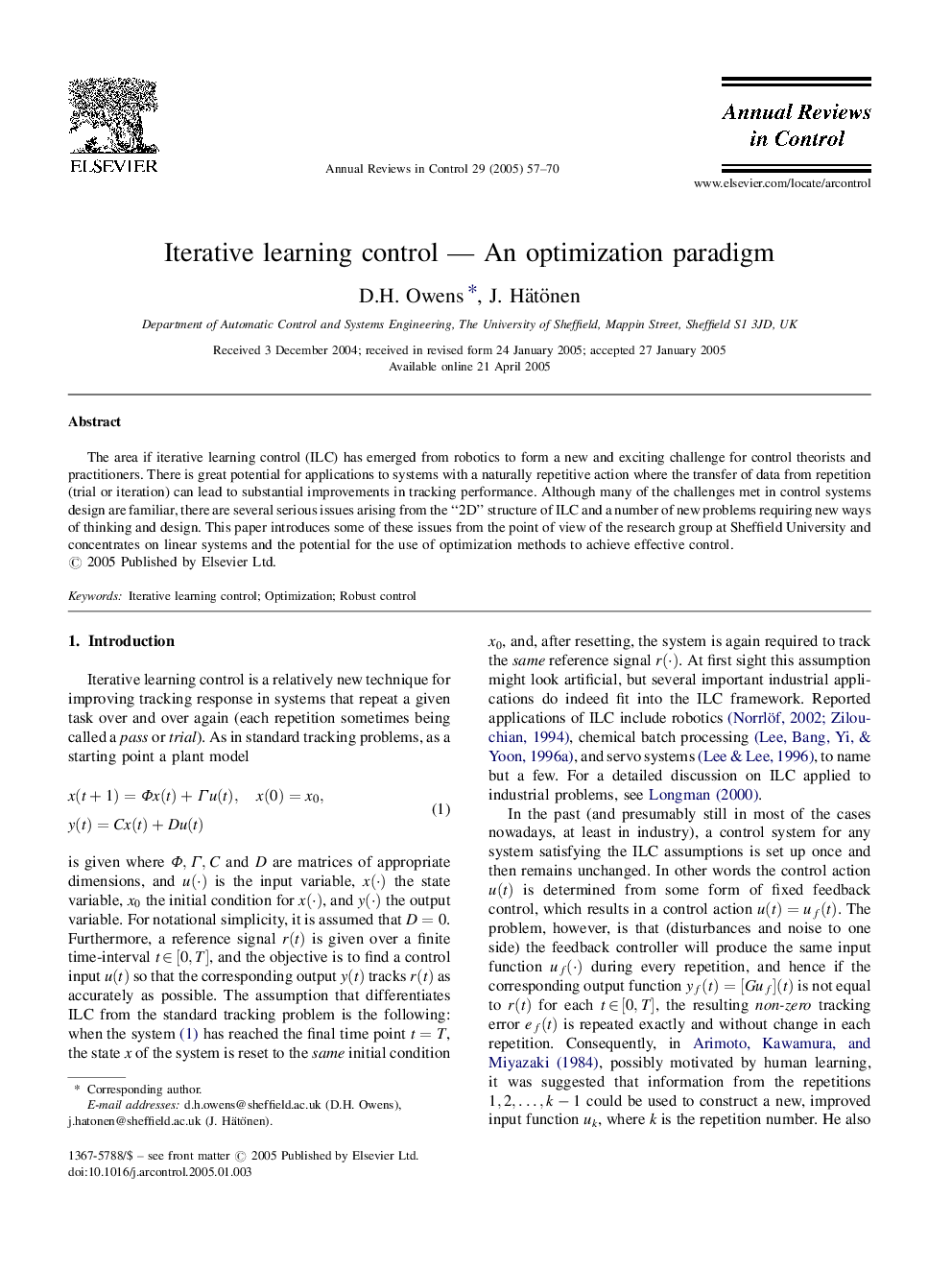| Article ID | Journal | Published Year | Pages | File Type |
|---|---|---|---|---|
| 10398635 | Annual Reviews in Control | 2005 | 14 Pages |
Abstract
The area if iterative learning control (ILC) has emerged from robotics to form a new and exciting challenge for control theorists and practitioners. There is great potential for applications to systems with a naturally repetitive action where the transfer of data from repetition (trial or iteration) can lead to substantial improvements in tracking performance. Although many of the challenges met in control systems design are familiar, there are several serious issues arising from the “2D” structure of ILC and a number of new problems requiring new ways of thinking and design. This paper introduces some of these issues from the point of view of the research group at Sheffield University and concentrates on linear systems and the potential for the use of optimization methods to achieve effective control.
Related Topics
Physical Sciences and Engineering
Engineering
Control and Systems Engineering
Authors
D.H. Owens, J. Hätönen,
